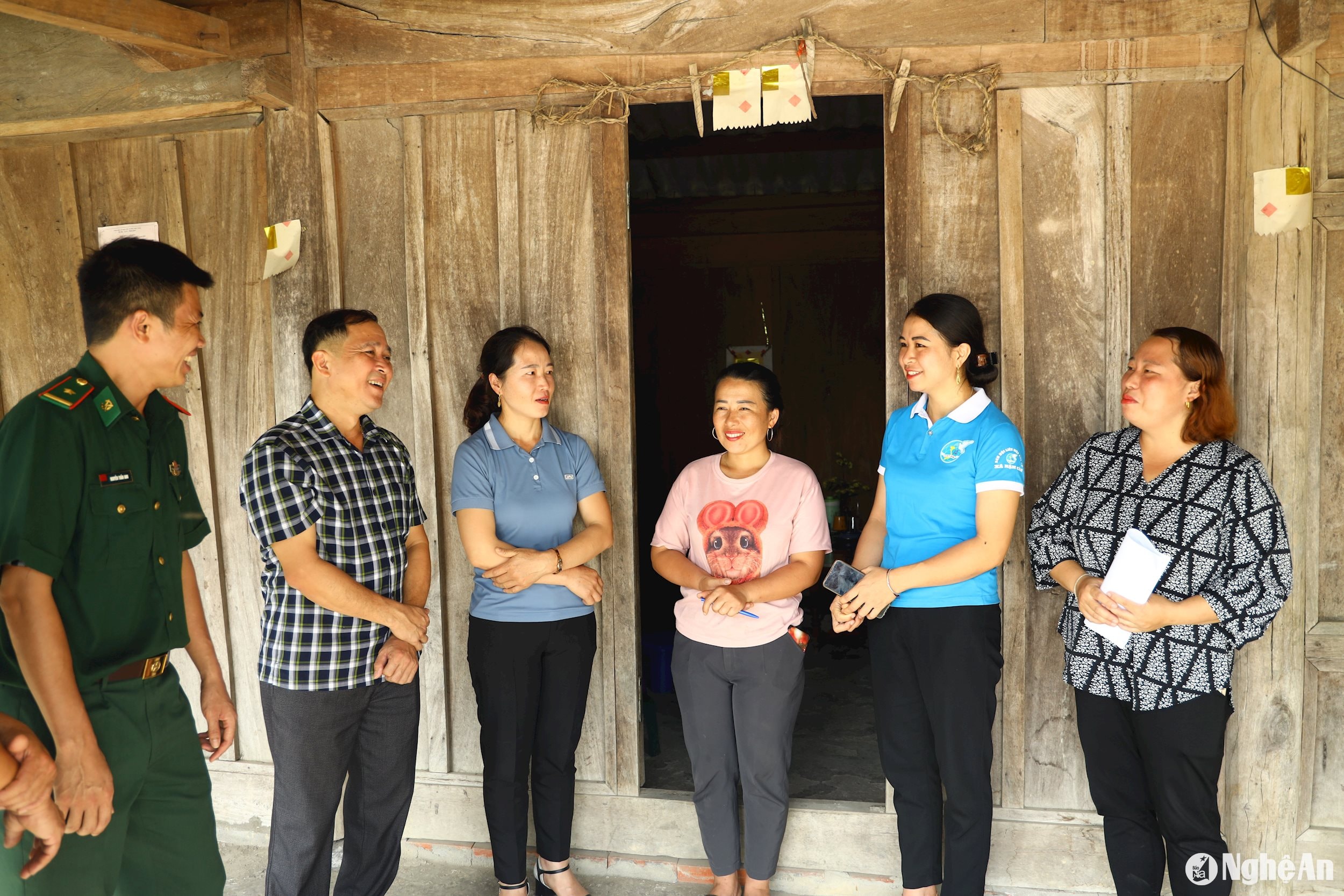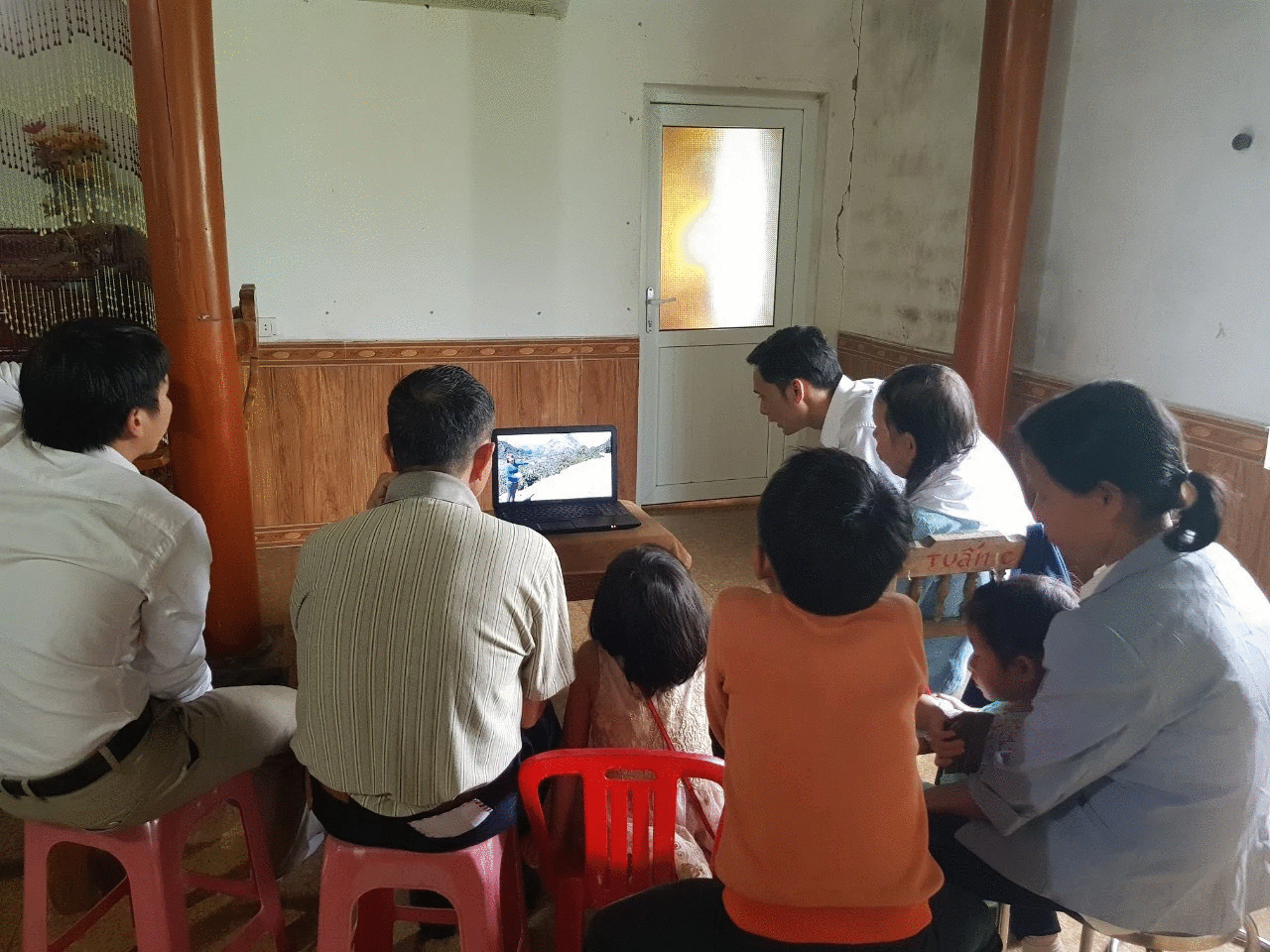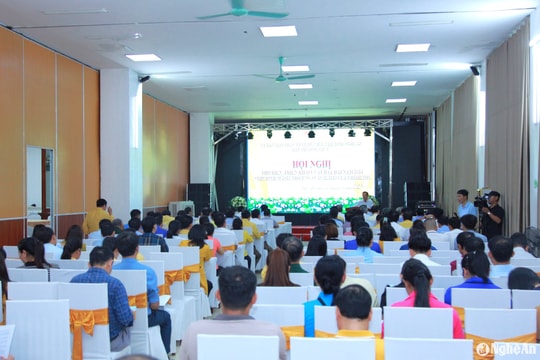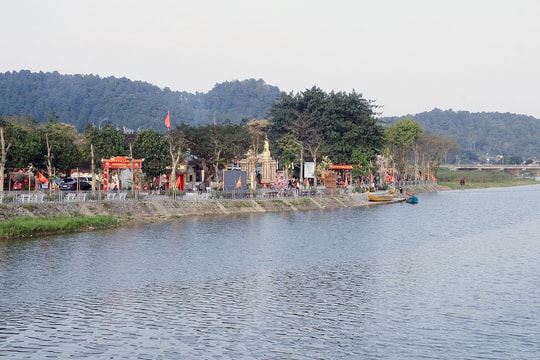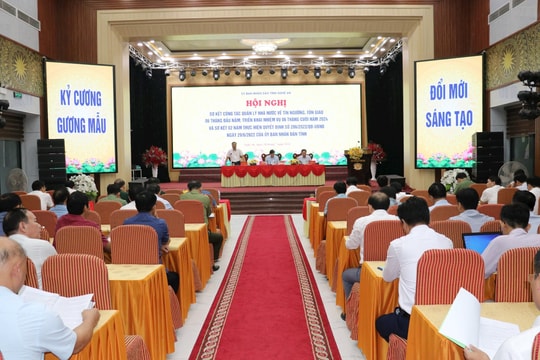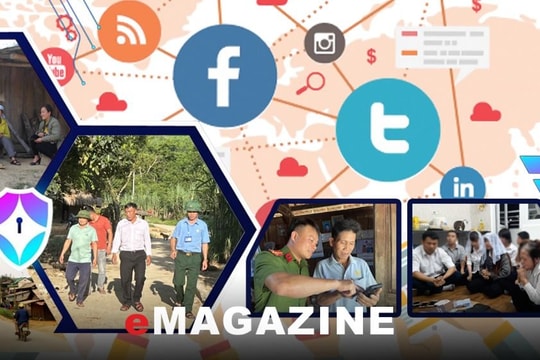Resolutely and persistently prevent illegal proselytizing - Part I: Correctly identifying the situation
Many people take advantage of Vietnam's open-door and integration policies to conduct illegal proselytizing activities in localities. These people invite small groups of people to practice with the intention of gradually expanding their areas of operation. How can we promptly detect and prevent illegal proselytizing activities, contributing to ensuring security, order and social safety?
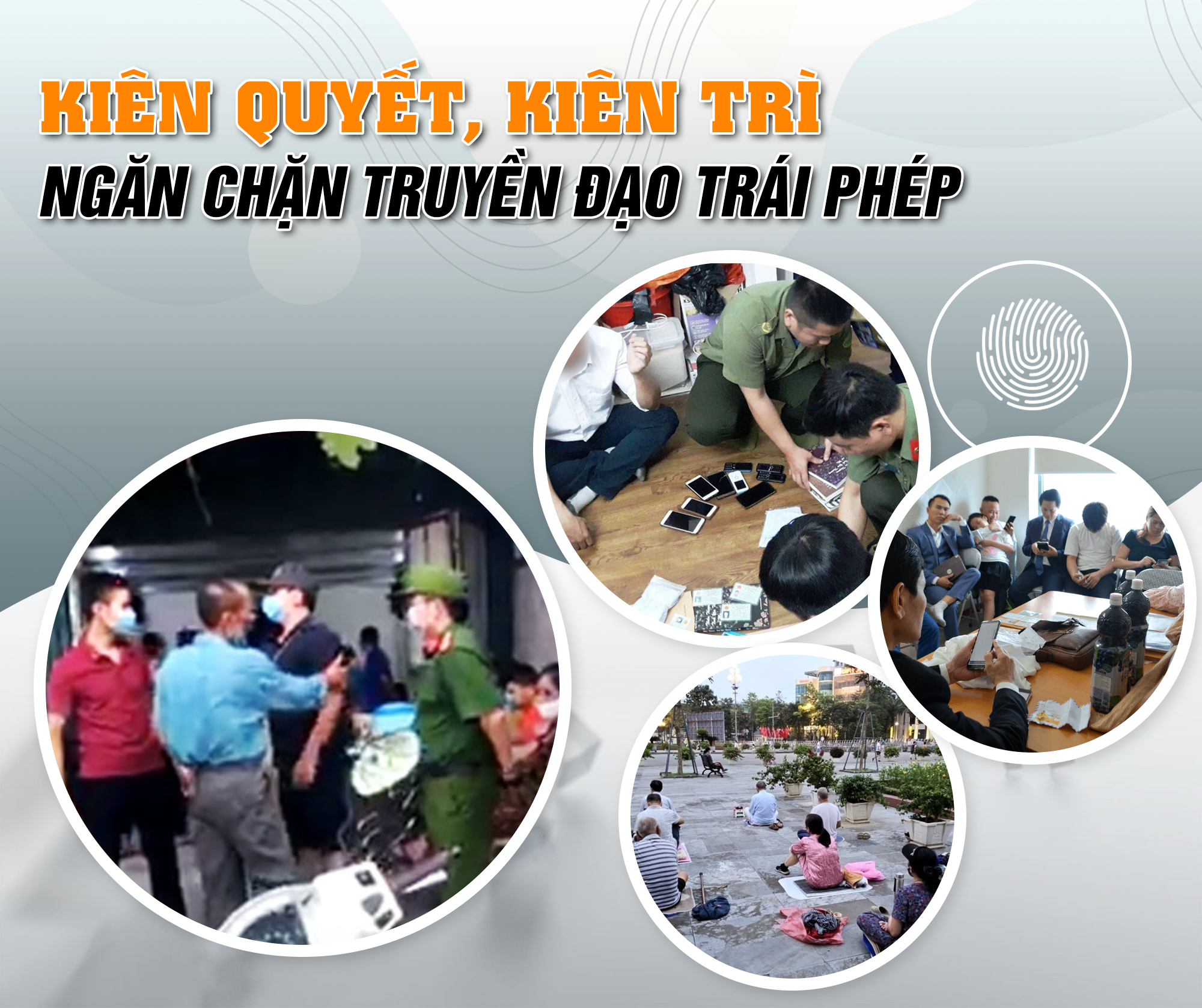
Lesson 1:
RECOGNIZE THE SITUATION CORRECTLY
PV Group• October 31, 2024
Many people take advantage of Vietnam's open-door and integration policies to conduct illegal proselytizing activities in localities. These people invite small groups of people to practice with the intention of gradually expanding their areas of operation. How can we promptly detect and prevent illegal proselytizing activities, contributing to ensuring security, order and social safety?
ILLEGAL METHODS OF PROPAGANDA
Through the authorities' understanding, in recent times, in Nghe An province, there have been many activities of proselytizing and developing illegal religious organizations. This field is mainly related to Protestantism, the Church of God the Mother, and Falun Gong (not recognized by our State as a type of religion).
At the same time, “strange religions” such as “Dharma of Wonderful Sound”, “Energy of the Bronze Drum”, “Consistent Religion”, etc. also practice or entice gullible people to go abroad to attend training courses abroad. In some residential areas, religious activities are not in accordance with the law, potentially causing complications for security and order.
The illegal infiltration of some religions has affected the beliefs and religions of the people, especially ethnic minorities. Many incidents have caused conflicts in ethnic-religious relations, affecting the great national unity bloc at the grassroots level.
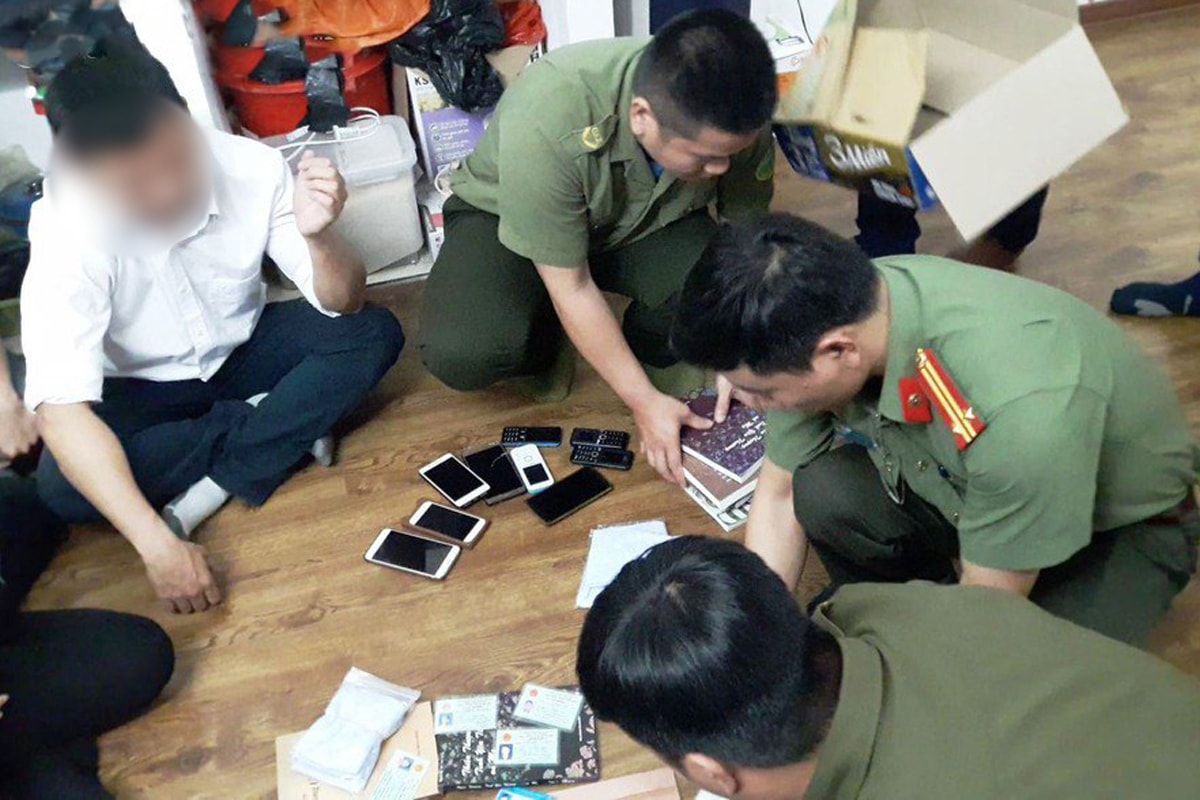
From 2020 to April 2024, Nghe An Police coordinated with functional forces and local people to detect, combat, and handle 83 cases, 462 subjects with illegal proselytizing and religious development, confiscating more than 2,987 documents and hundreds of related illegal artifacts. Of which, Protestantism had 13 cases, 141 subjects; Church of God the Mother had 16 cases, 94 subjects; Beliefs and spirituality related to President Ho Chi Minh had 6 cases, 157 subjects; Falun Gong had 48 cases, 70 subjects.
Nghe An currently has two main religions: Catholicism and Buddhism. Catholicism has nearly 270,000 followers, operating in 11 dioceses, 91 parishes, and 346 sub-religions. Buddhism has about 30,000 Buddhists, operating in 43 pagodas. Protestantism has about 150 followers of many different sects, but no group has been granted a registration for centralized religious activities. In addition, many people participate in the Church of God the Mother, Falun Gong (not recognized by our State as a type of religion), "Dieu Am Dharma", "Nang Nguyen Dong Trong", "Nhat Quan Dao"...
Instead of organizing extensive preaching activities as before, recently, illegal preachers in Nghe An and some provinces and cities have formed small groups in many specific areas. This form is to avoid detection by local authorities, sectors and people.
If discovered, illegal proselytizers use the excuse of visiting relatives, preparing for ceremonies to ward off bad luck, and praying for good luck for some families... At the same time, some religions also increase the dissemination of illegal proselytizing documents, enticing and attracting people through chat software such as Zalo, Messenger, Telegram, Shen Yun Zuo Pin...
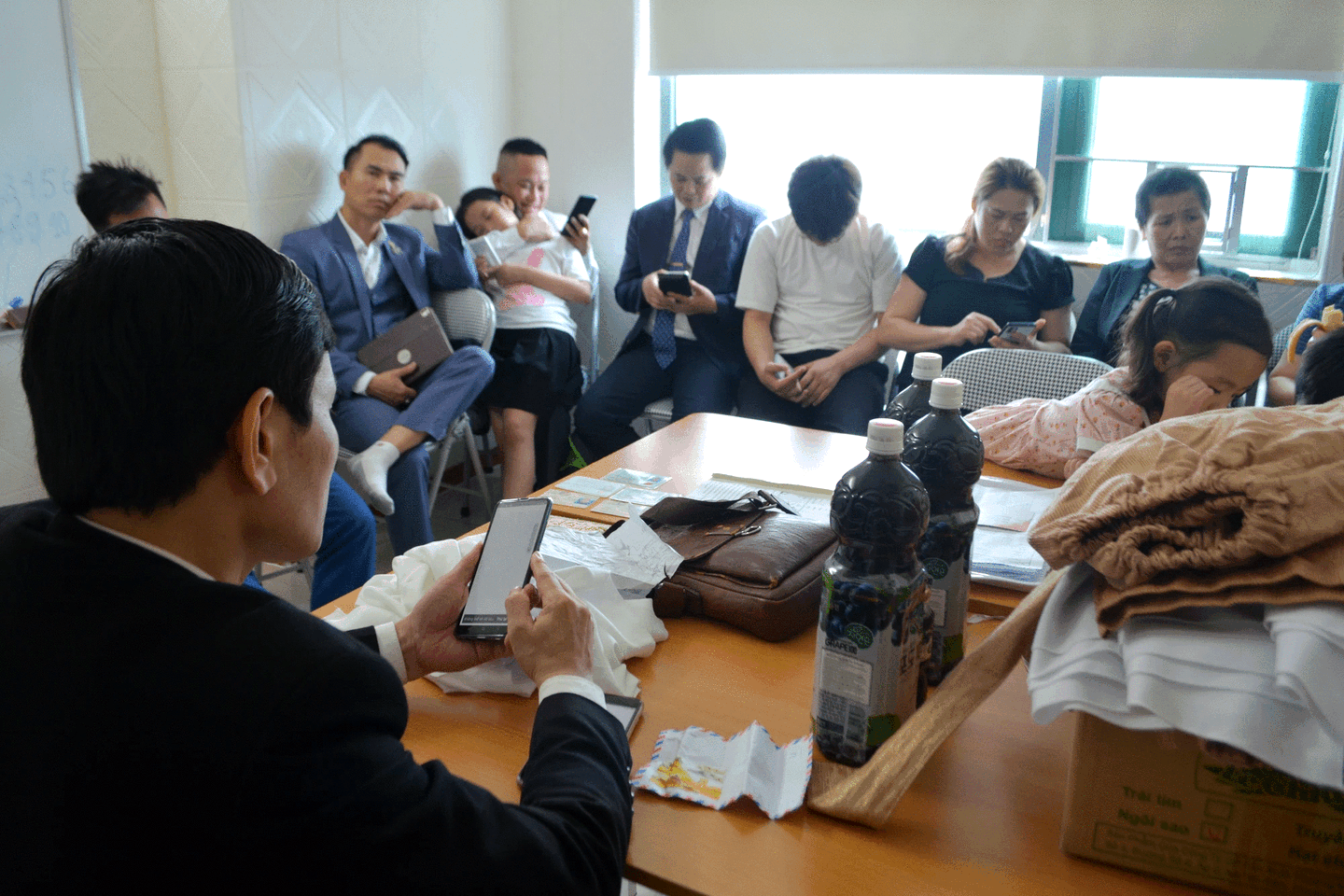
Authorities have also discovered that there are cases of people taking advantage of charity and humanitarian activities to illegally approach and proselytize when supporting people affected by natural disasters in some mountainous areas. At the same time, many people have increasingly "infiltrated" social issues to illegally proselytize.
Some individuals abroad use social networks to illegally proselytize; to propagate ideas that go against the morality, law and ideology of the country. Through this, they aim to cause “concern” among the people and gradually “cram” illegal proselytizing content, inciting religious and ethnic conflicts.
Illegal preaching activities have greatly affected the thinking of people in some regions; causing doubts and "collisions" between some people (who have long lived peacefully) and authorities and sectors. At the same time, some foreign organizations have taken advantage of religious issues to carry out "internal attack, external attack" plots, causing harm to security, order and social safety in our country.
Recently, the organization “Board for the Relief of Boat People” (BPSOS) has been thoroughly exploiting social networks to sabotage Vietnam under the guise of “religious investigation”. This self-proclaimed organization was founded in 1980 by Phan Lac Tiep (born 1933), a former officer of the Republic of Vietnam Navy, and Nguyen Huu Xuong, a former professor at San Diego University, headquartered in Sandiego, California (USA) with the initial purpose of helping Vietnamese “refugees” in the US. In 1990, this organization was transferred to Nguyen Dinh Thang (born 1958, in Ho Chi Minh City, American nationality), to continue to operate.
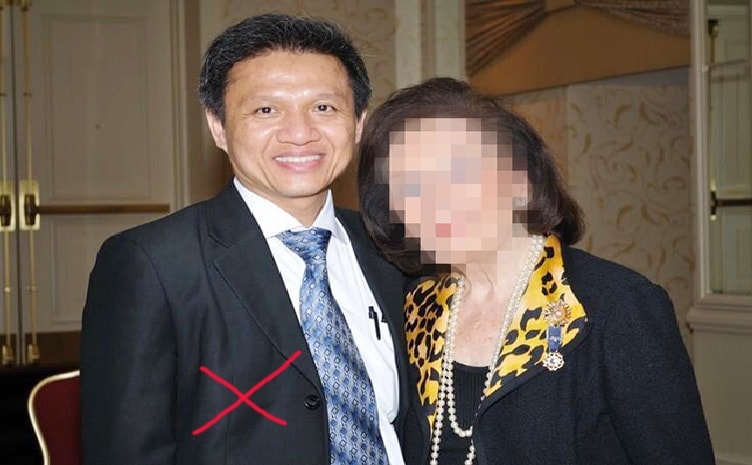
Nguyen Dinh Thang and his subjects regularly collect information related to the field of beliefs and religions in Vietnam. They organize seminars and discussion forums on social networks with the topic of "religious freedom in Vietnam"; establish the so-called "Vietnam Civil Rights Project", launch the "Vietnam Religious Survey Project", serving the purpose of opposing the Vietnamese government in cyberspace. A typical example is the incident related to the terrorist attack that occurred on June 11, 2023 in Dak Lak; some Protestant dignitaries and followers of the Hmong religion with wrong views have spread rumors and condemned the Vietnamese government for "suppressing Protestantism"...
THE QUESTIONABLE DEDICATION OF PASTORS
According to the White Book "Religion and Religious Policy in Vietnam", there are 43 organizations belonging to 16 religions nationwide recognized and granted registration for operation by the State, with over 26.5 million followers, accounting for 27% of the country's population; more than 54 thousand dignitaries, over 135 thousand officials and nearly 30 thousand places of worship. The religions with the most followers are Buddhism with about over 14 million followers, Catholicism with about 7 million followers, Hoa Hao Buddhism with about 1.5 million followers, Protestantism with about 1.21 million followers; Cao Dai with about over 1.1 million followers...
In some localities in Nghe An, Protestantism had been active since 1928, then dispersed, then crept back. The General Evangelical Church of Vietnam (North) has repeatedly requested the government in Nghe An to restore the organization and rebuild the Protestant church in Vinh city, but the government did not have the conditions to resolve the issue.
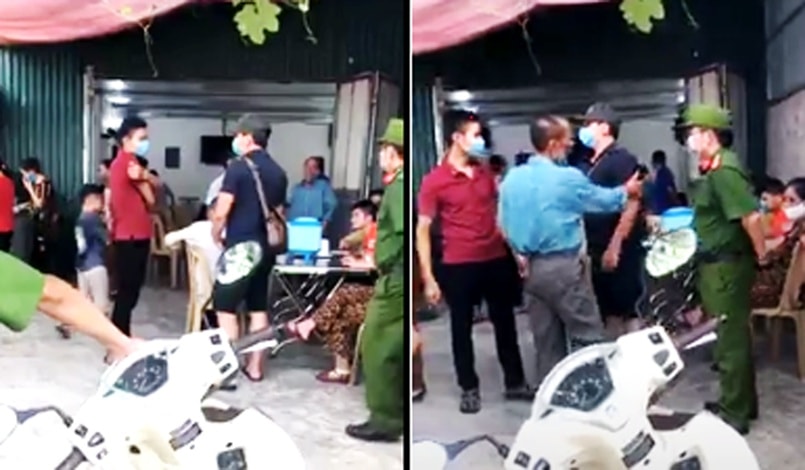
In 1994, a number of Mong people who migrated to Laos followed Protestantism and returned to Huoi Tu commune, Ky Son district to illegally preach Protestantism; at one point, 48 households and 331 Mong people followed Protestantism. Later, due to the government and people's efforts to prevent proselytizing and illegal religious activities, only 3 households and 21 people remained.
In the following years, Protestant activities illegally penetrated the Mong ethnic area in Nghe An mainly through Mong radio stations abroad, the internet, and a few cases of Mong people visiting relatives in Laos and then returning to preach. Since then, more illegal Protestant preaching points have appeared in some mountainous and border areas.
Although the government and people's organizations have taken action to prevent it, illegal Protestant missionaries in Nghe An still find ways to form small groups, disperse their areas of operation, and entice "gullible" people to participate.
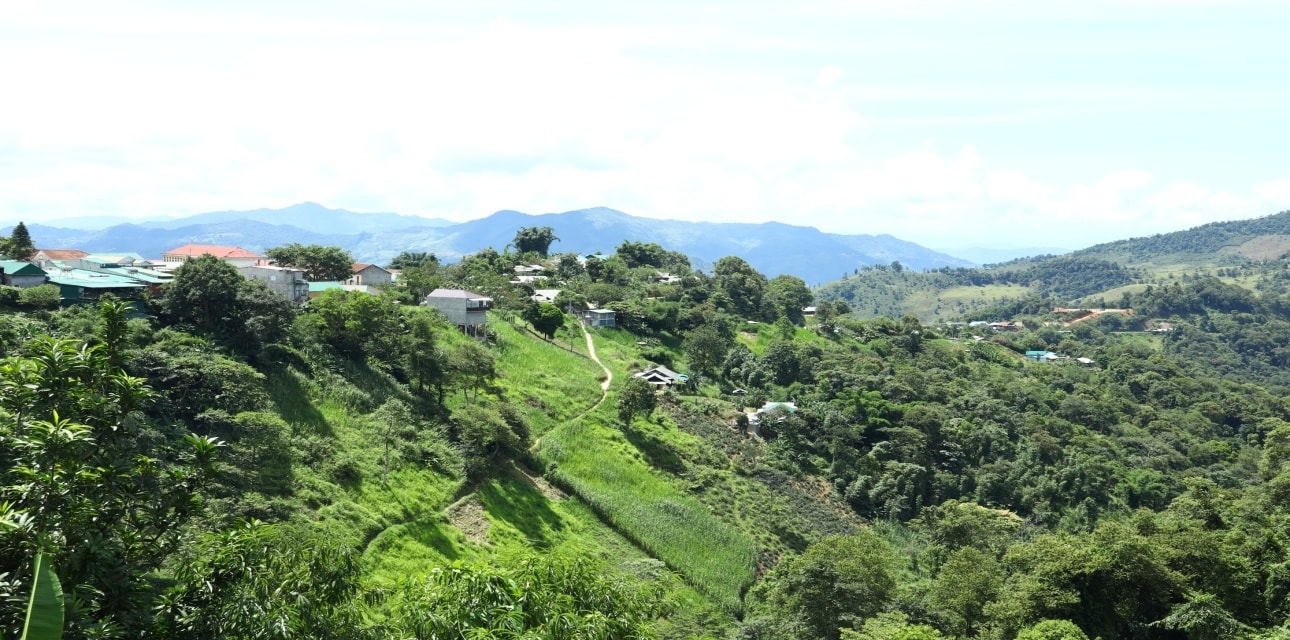
During the illegal proselytizing process, many Protestant monks and pastors and some other religions in the North have devoted themselves to Nghe An, to remote areas to perform ceremonies… They do this by paying all the expenses themselves and not accepting “compensation” from new converts. So where do they get the funds to operate? Is there any organization behind them that provides funds for monks and pastors to operate “for free” like that?

